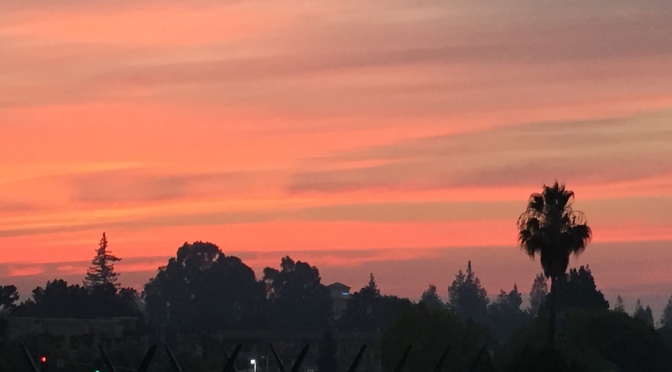When I first performed this symphony, I was in the Greater Buffalo Youth Orchestra. I was 15, and it was like an initiation rite: now I too would be able to say I’d played “Eroica”. The title was one of the attractions: Italian, exotic, even a little naughty if you think there might be supposed to be a “t” in the middle. I imagined I heard Boromir blowing his great horn in the 2nd movement. And of course there are the mythic stories about this symphony: Beethoven’s tearing up its dedication to Napoleon in protest, the Boston Symphony’s last-minute performance of the Funeral March in the face of unthinkable tragedy.
The second time I performed this symphony, I was an adult blogger on violinist.com. It was a whirlwind-quick festival over Christmas vacation, with a young, creative—heroic—conductor as the inspiration. I dusted off the old memories and was surprised and pleased at how well it all came back.
The third time I performed this symphony . . . well, I haven’t gotten there yet. We have 3 more rehearsals, which, if you think about it, isn’t that many. Yet, I still feel like I’m the muddy middle of things. I’m doing okay with respect to getting basic rhythm, intonation, and dynamics, and with re-awakening the muscle memory, but I’m still . . . struggling.
Back in my old orchestra, I was the concertmaster. I didn’t always mention that; in fact I usually just talked about “the orchestra I play in . . . “ unless it was a situation where I thought it would help me, or the orchestra, such as when I was dealing with publicity or finding a concert venue for orchestra-associated chamber groups. Then, I was the concertmaster, I was in charge, I was the one to deal with. I had the support of the conductor. I practiced my music, I tried my best to standardize the bowings, I served on the Board of Directors. I stood in front of the group and asked for the tuning A to start the concert. None of this stopped me from feeling like an impostor sometimes. Since I had never been to music school, since I had quit the violin twice, and since it was a non-audition volunteer group, I hadn’t earned the position the way most people do. I believe I did earn it over time, as a steady, conscientious presence who believed in and came to love the orchestra like a family. But I didn’t wear the mantle lightly, and sometimes I felt a little guilty enjoying it. After all those teenage years spent kicking around the back of county, state, and youth orchestras, and of turning the concertmaster’s pages in high school, a dream that I hadn’t even realized I’d been nurturing, came true in middle age.
And now it’s over.
During my time as concertmaster, I thought I was appropriately deferential to the conductor, and appropriately considerate of suggestions from the rest of the section (and other sections). I was small-c-conservative and mostly stuck to the printed bowings and took passages “as it comes” unless I had a good reason to do otherwise. Once I figured out a bowing I stuck with it and played it the same way from rehearsal to rehearsal, again, unless I had a good reason to do otherwise, and then the change was announced. My leadership style, if I could be said to have one at all, was not in-your-face, not heroic. I didn’t have strong musical opinions because I really didn’t think I had the right to have them.
Well, apparently, I was wrong about that and probably other things too. There’s nothing like the back of a first violin section to bring out the opinionatedness in all of us. For example, I have to admit, sheepishly, that I do not follow someone else’s bowings very well. For 7 years I’ve been used to doing what I want and expecting everyone else to follow me. And when I look up, I expect to see the conductor’s smiling face, not someone else’s bow going the opposite direction from mine. I find myself grumbling silently—up bow? There? WTF, are you kidding me? Oh, yeah, ok, that’s fine. Oops. I’ve been making liberal use of my pencil—and its eraser—in rehearsal.
In Eroica, though, my opinionatedness seems to focus on something different: interpretation. I remember now that I did have a policy as concertmaster that was not universally loved. I always told my section to play chords divisi, the notes divided up between two players on a stand, unless it was explicitly marked “non-div” or unless the conductor said otherwise. This started as a carryover from high school and youth orchestra days, but I still agree with it in principle. I think that symphonic chords, at least when played by a non-professional orchestra, sound better when played divisi: cleaner, better in tune, more together, and less crunchy, because players each only have 1-2 notes to worry about, but all notes are heard in the audience. Playing chords divisi also works to prevent a phenomenon that I personally dislike (and here is my opinionatedness again rearing its ugly head): violinist showoffy-ness. But in the current performance, not only are we supposed to play all the chords non-divisi, but he’s having us do a lot of down-bow retakes, another technique that I prefer to use sparingly.
I want to stop grumbling, even silently. I’m new here and I know it’s not my place to grumble. But I still don’t like the heaviness that these techniques bring to the piece. The concertmaster says it’s what Beethoven would have wanted, a reason I fully respect, if true. But is it true? How can we know?
Beethoven’s Eroica might be the most talked- and written-about symphony in the history of classical music. I did a little internet research and I found a number of cool things that made writing this blog take a long time but didn’t answer my question: 1. The Eroica Riddle: Did Napoleon Remain Beethoven’s Hero; Beethoven’s taking away the dedication to Napoleon may have been motivated more by practical and financial reasons, than by democratic disillusionment with a self-proclaimed emperor. 2. Norman Bates listened to Eroica in the Hitchcock movie, “Psycho;” and 3. The opening chords in Eroica can be, and have been, played many different ways, from short to long to bright to deep, at different tempos and even with different pitches, if you include historical recordings.
This last project, in particular, drives the point home that everyone has an opinion, they’re all different, and maybe that’s actually part of the fun. So this is mine. Yes, the Eroica ushered in a new symphonic era. It was unique, and revolutionary. It threw off shackles, and Prometheus became unbound. But it didn’t completely lose touch with its classical roots, either. Underneath the unexpected chord changes and rich orchestrations, there is still a framework that connects it with Mozart, Haydn, and those who came before. There is still room for lightness, even delicacy, in the Eroica. There are always going to be the myths, and there is always going to be someone who comes along and points out that it is really more complicated. Than that.














